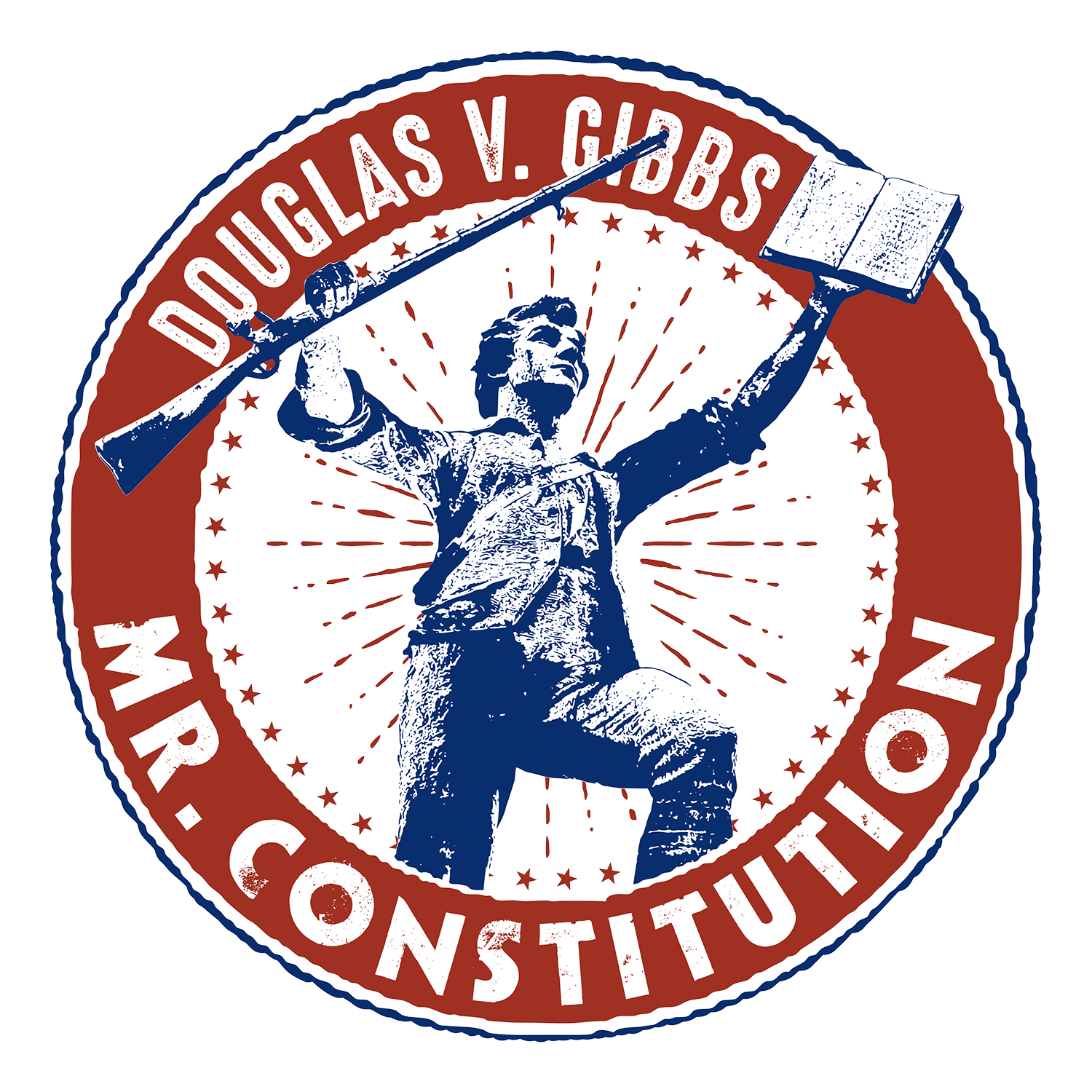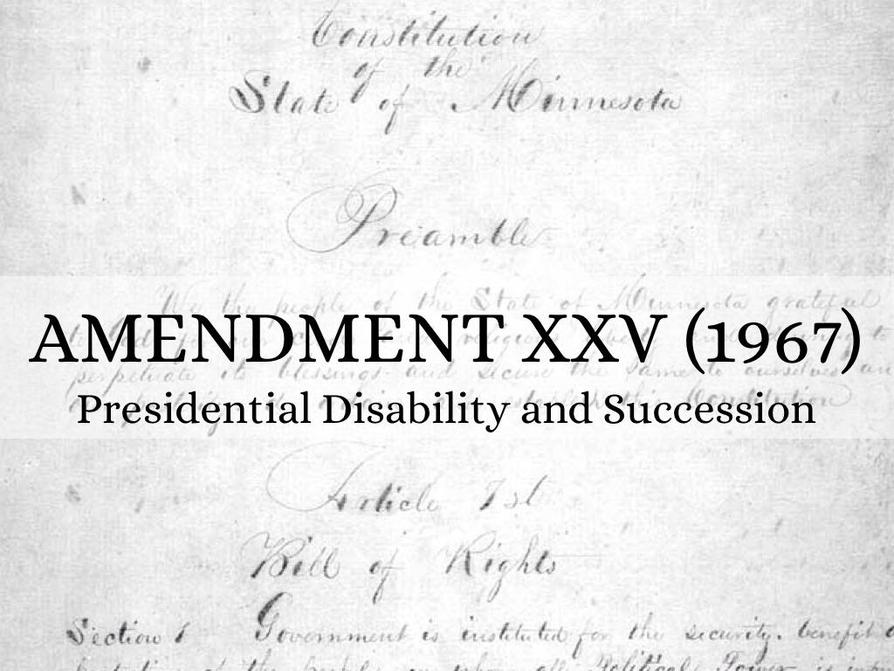By Douglas V. Gibbs
The lack of mental acuity of President Joseph Biden during his presidency has been a major talking point for Republicans since they gained power – but few were squawking about it the first time Biden stuttered, shuffled, got confused, and tripped over his own feet. I was. Many pundits were. But you didn’t.
According to Representative Andy Biggs, R-Arizona thanks to the whole autopen scandal that goes hand in hand with the “Biden was confused but they hid it” scandal, and the recent failure of Biden’s aides and staffers to come clean about it during congressional hearings, we need to revamp the 25th Amendment.
The 25th Amendment was ratified February 10, 1967. Among the factors behind the amendment to the United States Constitution was the question, “What if John F. Kennedy had survived taking an assassin’s bullet to the head?” We had already seen in our history the problem of a President unable to perform his duties due to a medical event that rendered his mind to be not much more than a bowl of mush when President Woodrow Wilson suffered a major stroke. While the cover-up was about as intense as the one around Biden’s mush-minded years in office, with some even suggesting that Wilson’s wife was running the country during those final 18 months of his presidency, the other reality was that it created a clear need for a constitutional mechanism for handling a President’s inability to perform his duties.
The 25th Amendment fixed a few things that were not directly addressed in the Constitution prior to its ratification.
No place in the Constitution did the document lay out what happens if the President is suddenly removed from office by death, or any other reason. The tradition was that the Vice President assumed the presidency, a tradition launched thanks to John Tyler, who became President after the death of William Henry Harrison, the first President to die while in office. The argument on what to do was fierce, with many claiming that the Vice President could only be the “acting” President, and that the actual position of President would not be truly filled until after the next election. Tyler rejected that notion, and had a forceful enough personality, and was known for being a serious student and defender of the original intent of the Constitution that he became President of the United States before all of the dust settled. As a result, that became the tradition, despite not being a constitutional reality codified on the pages of the document.
The 25th Amendment resolved the presidential vacancy question in its first sentence which is also the first section of the amendment.
“In case of the removal of the President from office or of his death or resignation, the Vice President shall become President.”
Section 2 of the 25th Amendment then resolved what should happen after the Vice Presidency became vacant due to the V.P. taking the office of the President:
“Whenever there is a vacancy in the office of the Vice President, the President shall nominate a Vice President who shall take office upon confirmation by a majority vote of both Houses of Congress.”
To burst a few bubbles, that clause means that the Speaker of the House does not automatically become V.P. as some have argued, should that seat become available.
Section 3 of the 25th Amendment tackled the issue of when the President would be able to send a letter to Congress explaining that he will be temporarily incapacitated, and so until he can return to full duty the Vice President will be “Acting President.” We saw this clause play out when Ronald Reagan was shot and needed to go into surgery and recover from his gunshot wound and subsequent surgery.
Section 4 is the part of the 25th Amendment Representative Biggs would like to revamp. The clause explains that if the Vice President and either a majority of the principal officers of the executive departments (a.k.a. the President’s Cabinet), or a body created by Congress through law write a letter and send it to the heads of each House of Congress stating the President is not able to carry out his duties (for any reason) then he should be removed from office, and he will be unless the President responds with his own letter saying that the first letter was not true. Then, the group calling for his removal has a choice. Push it, or back off. If they push it, then it goes to Congress and the matter will be resolved by a vote, requiring a two-third majority in each House to vote he should be removed if it is going to happen.
Following congressional conversations with Biden’s staff, which simply has doubled-down on the cover-up by lying about knowing about Biden’s mental insufficiencies, or pleading the 5th (right to not self-incriminate/right to remain silent) Biggs suggests that the way the 25th Amendment is worded it “incentives Cabinet members to protect and hide a debilitated president.” In short, he believes Congress should have more say early on. He added, “I know…we have a separation of powers issue, but I do think that you can finesse that and get that through.”
I get it. The whole lack of mental acuity and the abuse of the autopen is a big deal – a criminal deal, if you ask me. In fact, some might even use the “f” word and the “t” word (Fraud and Treason). Bad people do bad things, and bad politicians are worse.
But, separation of powers is a big deal. The idea behind the 25th Amendment is to keep in mind the Founding Fathers’ fondness for checks and balances. The wheels of government grind slowly on purpose, and removal of the President for any reason is difficult on purpose as per the 25th Amendment. Mutiny should never be easy, so the process was designed to go into effect when the reasons are so serious that even his own people agree with it.
That said, remember that the clause allows for a part of the group calling for the President to be removed to be a group that may be established by Congress by law. So, the clause does call for Congress to be in on it early, if they take the initiative. In either case, be it a group created by Congress, or a majority of the Cabinet members, the Vice President must be in on it as well. That is the check and balance. The situation has to be so serious that even the President’s greatest ally, his V.P., must be in on it.
That said, the President, if he’s with it enough, can still shoot it down.
I get it. What happened during the Biden administration was wrong, and should not have happened. The moment Biden began bumping into walls, needing giant bunnies to get him pointed in the right direction, and falling up stairs the whole thing should have been put in motion – and the Democrats refused to admit it because they saw it as a chance to wield power without the bumbling old man being in the way. But, that doesn’t mean you take a well-written amendment and destroy the whole point of why it is difficult to execute. If it was changed to give Congress more say early on (and I think Biggs wants unilateral power for Congress), every time in the future when the Democrats controlled Congress and the President was a member of the GOP, they’d be putting it into action. Biggs, I understand your concern, but the 25th Amendment is fine. The problem during Biden’s presidency was not that the Constitution didn’t allow anyone to do anything – it was that everybody was too afraid to do anything because during that four years the radical left had everyone afraid to squeak a single peep against them. Biggs, you and the Republicans knew Biden was not able to carry out the duties of his office, but you played the Democrats’ game and kept quiet. The fault does not lie in the Constitution – it lies squarely upon you being a bunch of spineless jellyfish.
— Political Pistachio Conservative News and Commentary



